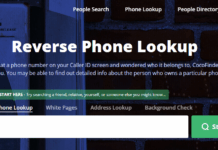 Most organizations today rely on the cloud to process and store business-critical and sensitive data. This data includes customer records, proprietary information, intellectual property, and financial data. To comply with industry regulations, preserve the business’s reputation, and maintain customer’s trust, your organization must ensure the company’s data integrity and confidentiality. This involves avoiding cloud security mistakes that could result in data breaches. If you are a business owner, here are the 10 most common cloud security mistakes your organization should avoid in 2024.
Most organizations today rely on the cloud to process and store business-critical and sensitive data. This data includes customer records, proprietary information, intellectual property, and financial data. To comply with industry regulations, preserve the business’s reputation, and maintain customer’s trust, your organization must ensure the company’s data integrity and confidentiality. This involves avoiding cloud security mistakes that could result in data breaches. If you are a business owner, here are the 10 most common cloud security mistakes your organization should avoid in 2024.
1. Use of outdated software
Hackers can quickly scan for an outdated system and obtain unauthorized access to sensitive business data. They could compromise, launch an attack, or steal the data, harming your company’s reputation. For this reason, ensure you keep your cloud systems up-to-date.
Be sure to patch and maintain systems. You should also be on top of cloud software updates vital to your security to combat malware infections and attacks.
2. Lack of security employee training and awareness
Most businesses overlook employee security training as it is often time-consuming and expensive. However, inadequately trained employees are more vulnerable to security lapses and social engineering attacks. They will also likely be non-compliant with industry security regulations, resulting in fines and reputation dents.
Ensure all employees dealing with cloud infrastructure are up-to-date with advanced cloud security best practices to protect company data. Educating your employees also enables them to detect suspicious activity, reducing the risk of cyberattacks.
3. Failing to turn off unused ports
Cybercriminals often leverage unused ports to access your company’s cloud infrastructure. For instance, a hacker could use an open FTP as an attack surface.
Be sure to turn off unused ports to avoid leaving an open pathway for a hacker targeting your company’s cloud computation software.
4. Not implementing privileged access control
Lack of privileged access control does not only compromise your cloud security. It also hurts the software’s performance. For this reason, you should avoid letting anyone access your cloud security platform. Instead, enable privileged access control to ensure only authorized users can access your company’s cloud platform.
With that being said, be careful not to grant too many permissions, as this could result in overcrowding, which can be catastrophic to your system. Implement the “least privilege” principle to avoid over-permissions into your cloud resources. The “least privilege” principle states that users should only be granted access rights needed explicitly for their roles. This limits the damage a cybercriminal could make should they steal the user’s credentials or hack into the employee’s account.
5. Insecure Application Programming Interfaces (APIs)
Investing in APIs is critical in cloud computing to enable different cloud resources and systems to exchange data. However, if the APIs are not secured, it could result in data breaches. For instance, a cybercriminal could exploit an insecure API’s weakness to access your company’s sensitive data and resources.
Implement proper authorization and authentication controls to secure Application Programming Interfaces. You could maintain routine API inspections to detect unusual activities that could result in API-based cloud attacks. You could also implement API best practices like HTTPS and leverage protocols like OpenID and OAuth connect.
6. Relying solely on cloud providers
Finding a reliable and trustworthy cloud computing provider is critical. However, you should not entrust your company’s data security and apparatus solely to the cloud providers. Leaving security solely in the hands of the providers makes it impossible to monitor your business security framework. For instance, you cannot tell whether or not some of your staff have been leaking sensitive company data to a third party if you rely solely on the cloud providers.
Be sure to take complete control of your cloud infrastructure’s security by implementing the necessary strategies to address cloud platform issues. You could even onboard a cybersecurity professional to oversee your company’s cloud infrastructure.
7. Inadequate credential management
One of the most significant causes of cybercriminal attacks is insufficient credential management. For instance, some businesses use passcodes that are easily guessable or too weak. Others share the passwords between multiple users. These, combined with technological advancements that help hackers access the most advanced digital credentials like tokens, increase the risk of cloud security threats.
Reduce credential management issues in your organization in 2024 by implementing strong passcode policies. This makes your passwords unique and challenging to guess. You could store your passwords in a protect secrets and security tokens or password manager with solid access controls. Alternatively, invest in two-factor authentication. Two-factor authentication (2FA), also known as multi-factor authentication (MFA), requires you to verify your login attempts via another medium, including a mobile app, text, or email.
8. Overreliance on SMS for MFA
If you solely rely on the Short Message Service (SMS) as a mode of receiving the multi-factor authentication codes for your cloud security software, it is time to switch to other mediums. This is because SMSes can be compromised, and you could receive a code generated by a hacker or a wrong one, resulting in malware infection.
Consider leveraging third-party authenticators like Athy or Google Authenticator to protect your cloud infrastructure.
9. Lack of high-standard encryption protocol
If your company constantly transfers data from one location to another, cloud encryption is critical. Cloud encryption prevents unauthorized access, reducing the risk of cybercriminals stealing or changing data.
However, if your company uses outdated technology, cloud encryption could be compromised, resulting in data breaches, so you should invest in a high-standard encryption protocol. This involves determining which data should be encrypted and where the encryption should begin, then partnering with reliable providers with solid TLS-based encryption that use secure ciphers.
Finally, choose a trusted employee or provider to manage the encryption keys to avoid loss.
10. Using unvetted cloud solutions
Most business owners often partner with providers offering easy-to-adopt cloud services. The companies then use these new cloud solutions to process and store sensitive data without vetting, often leading to data breaches.
Be sure to invest in user education and monitoring approaches before using unvetted solutions to protect your cloud infrastructure.
Endnote
Protecting your cloud infrastructure should not be solely left to your cloud security vendors. Instead, you should take complete control of your cloud framework. Be sure to also familiarize yourself with the above cloud security mistakes and avoid them in 2024 to protect company data and improve your business’ reputation.


















